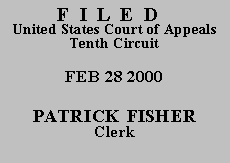

| UNITED STATES OF AMERICA, |
|
| v. | |
| WILLIAM ELMO GAINES, |
William Elmo Gaines seeks a certificate of appealability to appeal the district court's denial of his 28 U.S.C. § 2255 motion. A jury convicted Gaines of one count of conspiracy to distribute cocaine powder and/or cocaine base in violation of 21 U.S.C. §§ 841(a), 846 and one count of distribution of cocaine base in violation of 21 U.S.C. § 841(a)(1). Gaines was sentenced to a 292-month term of imprisonment. We affirmed his convictions and sentence. See United States v. Gaines, No. 94-6408, 1995 WL 678504 (10th Cir. Nov. 15, 1995).
On April 30, 1997, Gaines filed a pro se motion pursuant to 28 U.S.C. § 2255, raising two claims for relief: (1) the government's knowing use of perjured testimony to secure his conviction requires reversal, and (2) he was denied effective assistance of trial counsel on three grounds: (a) failure to investigate, (b) failure to consult with Gaines, and (c) failure to subject the government's case to the adversarial testing process. The district court denied Gaines' motion, finding that Gaines' first claim was procedurally barred since he did not raise the issue on direct appeal. The district court also rejected Gaines' claim of ineffective assistance of counsel, finding that "nothing asserted by defendant amounts to either deficient performance of counsel or could be said to have resulted in prejudice to the outcome." United States v. Gaines, No. CR-94-64-C, slip op. at 4 (W.D. Okla. Aug. 31, 1998) (Order). The court denied Gaines' motion for reconsideration on September 23, 1998.
On appeal,(1) Gaines reasserts the issues raised below(2) regarding ineffective assistance of counsel.(3) After careful review of the materials submitted by Gaines, and construing his pleadings liberally, we conclude that the analysis and conclusions set forth in the district court's August 31, 1998, order are correct.
For substantially the reasons stated in the district court's order, we conclude that Gaines has not "made a substantial showing of the denial of a constitutional right." 28 U.S.C. § 2253(c)(2). Accordingly, we GRANT his motion for leave to proceed in forma pauperis, DENY the request for a certificate of appealability, and DISMISS the appeal.
ENTERED FOR THE COURT
Stephen H. Anderson
Circuit Judge
*.This order and judgment is not binding precedent, except under the doctrines of law of the case, res judicata, and collateral estoppel. The court generally disfavors the citation of orders and judgments; nevertheless, an order and judgment may be cited under the terms and conditions of 10th Cir. R. 36.3.
1.We previously ordered the parties to address the jurisdictional issue of whether Gaines filed a timely notice of appeal. Although the government notes the disputed facts over the filing date of Gaines' pro se notice of appeal, we apply the "prisoner mailbox rule," which treats the date Gaines placed his motion in the prison mailbox as the filing date, see Houston v. Lack, 487 U.S. 266 (1988), and consider the appeal timely filed.
2.Gaines does not raise the allegation regarding knowing use of perjured testimony by the government as an independent issue, but raises the issue in the context of ineffective assistance of counsel.
3.Gaines also argues that his appellate and trial counsel were ineffective for failing to argue that the district court lacked jurisdiction over him under 21 U.S.C. §§ 841, 846. When a party advances arguments available but not presented to the trial court, and had ample opportunity to make the point in the trial court, the issue will not be entertained on appeal. See United States v. Olivo, 69 F.3d 1057, 1066 (10th Cir. 1995). In any event, the argument is meritless.